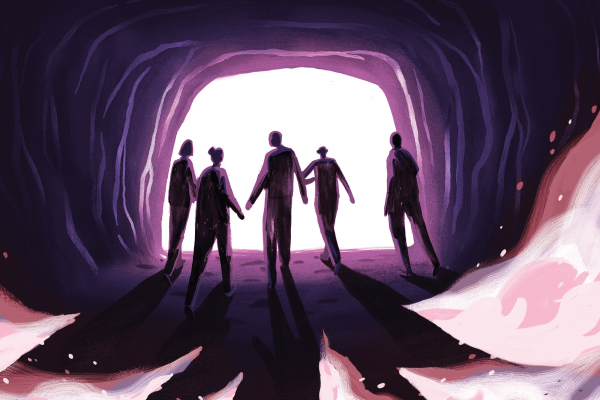“To be loved, baby, hard, at once, and forever, to strengthen you against the loveless world. Remember that: I know how black it looks today, for you. It looked bad that day, too, yes, we were trembling. We have not stopped trembling yet, but if we had not loved each other none of us would have survived. And now you must survive because we love you, and for the sake of your children and your children’s children.”
— James Baldwin,
The Fire Next Time
I ENTERED THE doctor’s office, met by the smiling face of the receptionist. “May I help you?” she asked, as I tried to maneuver my lips to smile to cover how terrible I was feeling. “I need to get tested.” She didn’t ask me what test I needed, or where I had come from, or what I was feeling. She checked me in and pointed me to the waiting area—a cold and lonely and familiar place.
I wondered if they knew how terrified I was for me, for my wife, for my son, for our baby not here yet. I wondered if they knew that my body was on fire, that my mind kept alternating between anger and regret for letting my friend in the house with no mask. I wondered if they knew how my stomach emptied the chopped carrots, old celery, and the warm chicken noodle soup into their clean toilet.
“Danté Stewart,” the nurse called out to me, “right this way.” I could hear my heartbeats through my ears as I took the steps through the cold and lonely and familiar clinic. She called in the other nurse. They took my pulse. They put the little white and blue device with the red numbers on my left middle finger. 97. Good. 106 bpm. My heart is racing. As I felt the blood pressure cuff tighten its grip on my arm, the nurses gave that look.
Read the Full Article

